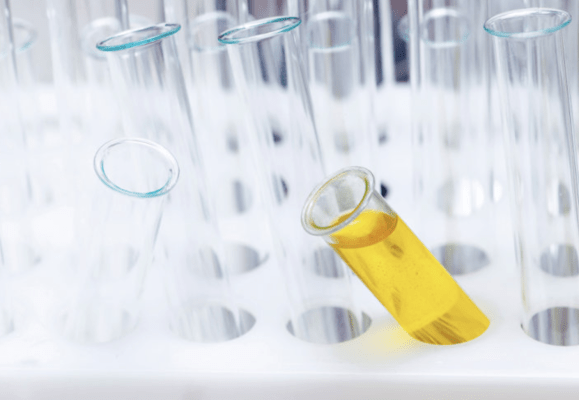
Rabbit Urine: An Effective, Sustainable Fertilizer and Insecticide
Rabbit Urine: An Effective, Sustainable Fertilizer and Insecticide
Abstract
Rabbit urine is emerging as a potent, eco-friendly alternative to conventional fertilizers and insecticides, exhibiting beneficial properties for plant growth and pest control. This article explores the unique composition of rabbit urine, its application in agriculture, and the advantages it presents over synthetic chemicals.
Introduction
Rabbit urine is a natural byproduct of the cuniculture industry, comprising a complex mixture of essential nutrients and biologically active compounds. Recent studies have demonstrated its potential as an effective, sustainable fertilizer and insecticide, offering a green alternative to conventional agrochemicals. The primary benefits of rabbit urine include improved nutrient uptake, enhanced plant growth, and effective pest management, thus reducing dependency on synthetic chemicals and promoting sustainable agricultural practices.
Chemical Composition
Rabbit urine is an abundant source of essential macronutrients such as nitrogen (N), phosphorus (P), and potassium (K), with an average N:P:K ratio of 12:1:8. Nitrogen is vital for protein synthesis and chlorophyll development, while phosphorus supports energy transfer and root growth. Potassium regulates water balance and improves resistance to diseases, pests, and environmental stresses. Additionally, rabbit urine contains a range of micronutrients, amino acids, enzymes, and growth hormones that further promote plant health and development.
As an Insecticide
The insecticidal properties of rabbit urine can be attributed to the presence of nitrogenous compounds, particularly urea and ammonia, which exhibit toxicity against a variety of agricultural pests. The alkaline nature of rabbit urine, with a pH range of 8.2-9.0, disrupts the physiological balance of pests, leading to dehydration and mortality. Furthermore, rabbit urine contains secondary metabolites such as alkaloids and phenolic compounds, which possess natural insecticidal and repellent activities.
Application and Dosage
To harness the full potential of rabbit urine as a fertilizer and insecticide, appropriate application methods and dosages must be employed. It is recommended to dilute rabbit urine with water in a 1:5 (urine:water) ratio for fertilization, and a 1:3 ratio for insecticidal purposes. This dilution ensures the optimal concentration of nutrients for plant growth while minimizing potential phytotoxicity. Apply the diluted solution directly to the soil, around the base of the plants, or as a foliar spray during the early morning or late evening to prevent leaf scorching.
Advantages over Synthetic Chemicals
Rabbit urine presents several advantages over synthetic fertilizers and insecticides, including:
- Environmental sustainability: Rabbit urine is a renewable, biodegradable resource, mitigating the environmental impacts of synthetic agrochemicals such as eutrophication, soil contamination, and groundwater pollution. The use of rabbit urine in agriculture reduces the reliance on non-renewable resources and lowers the carbon footprint associated with the production and transportation of synthetic chemicals.
- Cost-effectiveness: Rabbit urine is an inexpensive byproduct of the cuniculture industry, providing a cost-effective solution for farmers seeking to minimize agricultural input costs. The use of rabbit urine not only reduces expenditure on synthetic fertilizers and insecticides but also supports a circular economy by utilizing waste products.
- Soil health and fertility: Unlike synthetic fertilizers, which may cause soil acidification, rabbit urine promotes healthy soil pH and improves overall soil structure. The presence of organic matter in rabbit urine contributes to increased soil fertility by enhancing microbial activity, nutrient cycling, and water retention capacity.
- Reduced chemical resistance: Prolonged use of synthetic insecticides can lead to the development of resistance in pests, necessitating the application of higher doses or alternative chemicals to maintain control. Rabbit urine, with its diverse array of active compounds, presents a lower risk of resistance development, ensuring the long-term effectiveness of pest management strategies.
Conclusion
Rabbit urine represents a promising, eco-friendly alternative to synthetic fertilizers and insecticides in agriculture. Its unique chemical composition, coupled with its dual functionality as a fertilizer and insecticide, offers a sustainable and cost-effective solution for improved plant growth and pest management. By harnessing the benefits of rabbit urine, farmers can reduce their reliance on synthetic agrochemicals, promote soil health, and contribute to more sustainable agricultural practices. Further research and development are encouraged to optimize the application techniques and maximize the potential of rabbit urine in various agricultural contexts. The widespread adoption of rabbit urine as a natural, renewable resource for crop production and pest control can significantly contribute to the global efforts towards sustainable agriculture and environmental conservation.
